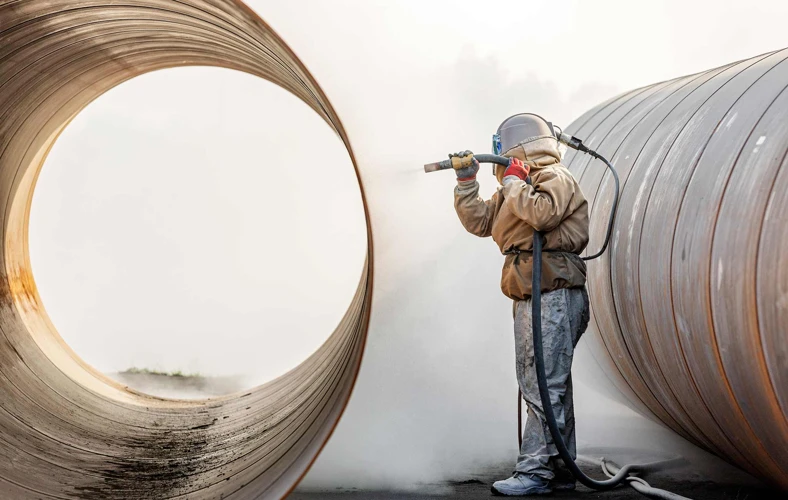Embarking on a painting project can be an exciting endeavor. The anticipation of a fresh, new look is exhilarating, but for a truly flawless paint job, the devil is in the details. In this ultimate guide, we’ll delve into the essential steps and surface prep techniques that lay the foundation for painting perfection.
Understanding the Importance of Surface Prep Techniques
Before a brush ever meets the wall, the critical process of surface preparation must be undertaken. Why is this so vital? It’s simple: paint adheres best to surfaces that are clean, smooth, and free of imperfections. By thoroughly preparing the surface, you ensure the longevity and beauty of your paint job.
The Comprehensive Paint Preparation Process
The path to a stunning finish begins long before the first coat is applied. Paint preparation process is a multi-step journey, encompassing everything from cleaning and repairing to sanding and priming. This comprehensive approach is non-negotiable for professional results.
The Steps to Perfect Paint Surface Prep
Every successful painting project starts with meticulous paint surface prep. Let’s break down these crucial steps one by one, ensuring that when it’s time to paint, your surfaces are in prime condition.
Cleaning: The Cornerstone of Preparing Walls for Painting
- Remove all dust, dirt, and grease from the walls.
- Use mild detergent and water for general cleaning; for tougher stains, specialized cleaners may be necessary.
- Allow the walls to dry completely before proceeding to the next step.
Cleaning is not just a cursory step; it is the cornerstone of preparing walls for painting. A wall free of contaminants will not only hold paint better but will also prevent future peeling or blistering.
Repairing Damage: A Key Aspect of Paint Job Preparation
Over time, walls accumulate a history of small scuffs and larger dings. Addressing these imperfections is a key aspect of paint job preparation. Fill holes with spackle, allow it to dry, and then sand it down to create a surface that’s as good as new.
Sanding: Essential for Smooth Surface Painting
Sanding is paramount for achieving that coveted smooth surface painting. It smooths out spackle or joint-compound patches and flattens ridges around nail holes. The goal is to create a surface that’s uniform and receptive to new paint.
Priming: Laying the Groundwork for Painting Success
Priming seals the prepped surface and forms a protective barrier, allowing the topcoat to adhere better and last longer. It’s especially important when covering dark colors or when painting a lighter color over a darker one.
Painting Preparation: Tips and Tricks for a Superior Finish
The journey to an exceptional paint finish is laden with tried-and-true painting prep tips. These insights are the difference between an amateur and a professional-looking outcome.
Choosing the Right Tools and Materials for Effective Painting Prep
Selecting the appropriate tools is critical for effective painting preparation. From quality brushes and rollers to the right type of tape for masking, each tool plays a pivotal role in the prep process.
Protective Measures to Ensure a Clean and Safe Work Environment
Implementing protective measures is vital to maintaining a clean and safe workspace. Drop cloths protect flooring and furniture, while masking tape ensures clean lines and protects windows and trim from errant brush strokes.
Advanced Surface Prep Techniques for Professional Results
For those seeking the highest caliber of finish possible, advanced surface prep techniques come into play. These methods, often employed by professionals, elevate the quality of the paint job to the next level.
Technological Advancements in Surface Preparation
From power sanders to high-tech primers, technological advancements have revolutionized the way we approach surface preparation. These tools and materials streamline the process, ensuring consistency and quality.
Expert Tips for a Meticulous Paint Preparation Process
Seasoned painters have their own set of expert tips for a meticulous paint preparation process. For instance, extending the drying time of spackle or using a tinted primer can significantly improve the outcome.
Maintaining Your Paint Job: Post-Painting Care and Tips
After the rollers have been cleaned and the tape peeled away, maintaining the beauty of your paint job is the next task. Proper care and protection are the keys to longevity.
How to Keep Your Paint Job Looking New
Regular cleaning and touch-ups can keep your walls looking freshly painted. Addressing scuffs and marks promptly prevents them from becoming permanent fixtures on your walls.
Long-Term Protection Strategies for Your Painted Surfaces
To safeguard your painted surfaces, consider using finishes that are washable and durable. Additionally, avoid hanging pictures or other items that might damage the surface.
When it comes to achieving a flawless paint job, the key lies in proper surface preparation. Before you even dip your brush or roller in paint, ensure that you’ve got all the necessary tools and know-how. For those looking to do exterior painting touch-ups, our article on the best tools for exterior painting touch-ups will guide you to the right equipment to get the job done. Safety is paramount when handling any painting project, so don’t overlook our essential tips on the essential safety gear for spray painting. And when you’re ready to start painting, achieve perfect results by learning about optimal paint coverage and roller loading. With the right preparation and tools, your painting project can go off without a hitch.
Conclusion: The Rewards of Diligent Surface Preparation
The effort invested in diligent surface preparation pays off in the longevity and beauty of your paint job. By following the steps outlined in this guide, you’re setting yourself up for a successful painting experience with results that are nothing short of professional.

